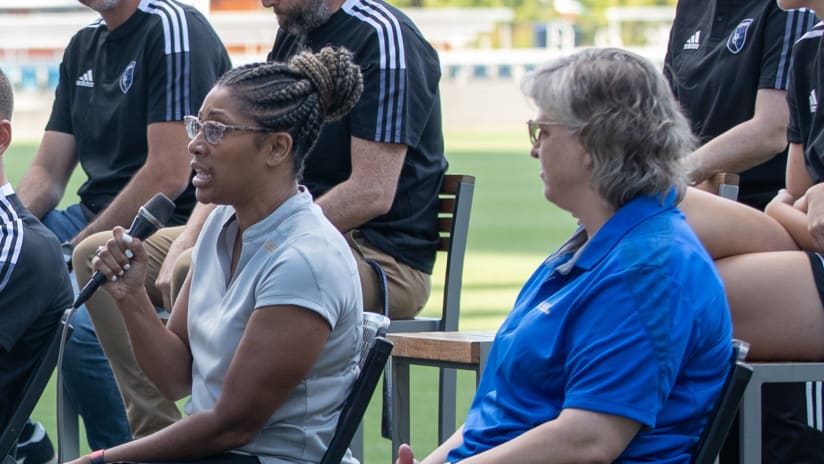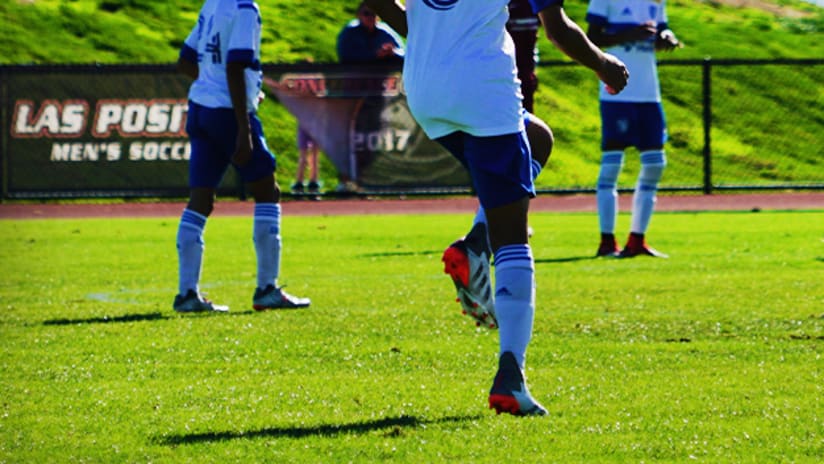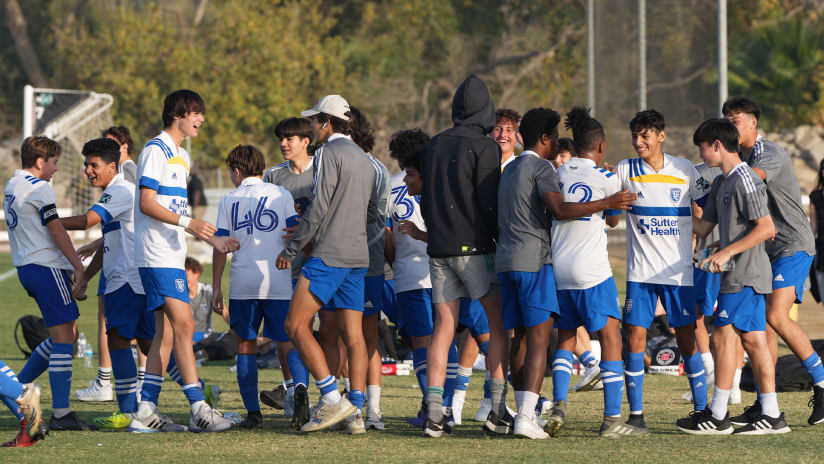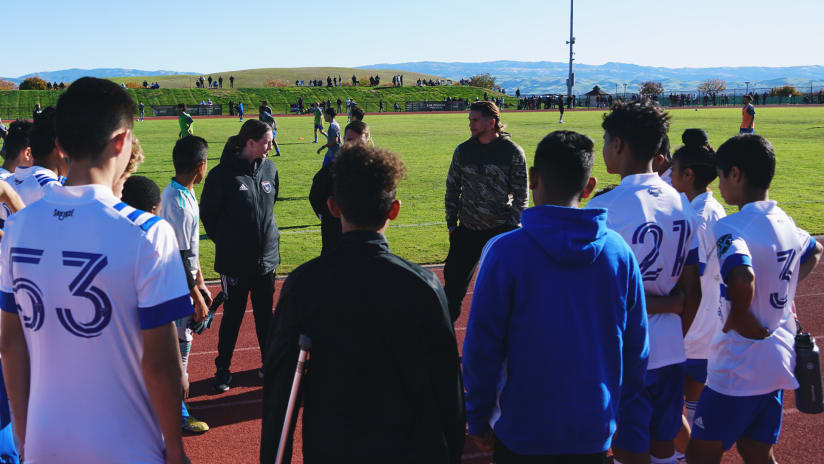The San Jose Earthquakes have been working with San Jose State University’s Institute for the Study of Sport, Society & Social Change (ISSSSC) to discuss diversity, equity and inclusion with our Academy.
Executive Director Akilah Carter-Francique and Executive Assistant Beth Doyle spoke on the importance of educating the youth and how they’ve been opening up discussions with our boys.
SJEarthquakes.com: When did the Quakes and ISSSSC begin working together?
Beth Doyle (BD): “We started conversations late in the year, last year. Our first actual interaction started in Spring. It looks to be about May, that’s when we did our first class and orientation session.”
SJEQ: What is the purpose of this program?
Akilah Carter-Francique (ACF): “The purpose of the program, it’s an opportunity to educate, whether they be students, whether they be adults, whether they be community members. More about the importance and the significance of diversity, equity and inclusion when it comes to having daily human interaction utilizing the platform of sport though provides in many ways something tangible. Something you can see, something you can visualize about the significance of it and so we utilize that particular platform of sport in order to start those conversations and continue to dive into things of race relations, of gender relations, of things with regard to social class, socioeconomic status and a host of other issues through this platform of sports.”
SJEQ: How did the program look like for the Academy?
(ACF): “We have a couple of more sessions with the youth academy. We’ve had an opportunity to have an opening session that gave an overview. I frame it in the terms of equity, diversity and inclusion. Being able to understand that there are those social equities first and what the significance of equity is in order to then begin to talk about the importance of diverse group staff or celebrating diversity. As well as being included in those spaces.”
“It’s been a great opportunity to share with them and engage with them. It has been via zoom. We’re being very mindful and conscientious of covid and those parameters and honoring that. I think we’ve had a great opportunity to engage with them and utilize some of this technology to be able to connect with them in a way that they can still have the opportunity to interact.”
SJEQ: We have four age groups, are all of them in one session?
(ACF): “No, we break those up. Our goal is really to have smaller sessions. We work with them per age group level so that way the information that we’re sharing, which is again the same information but being able to speak in a language that they understand. Being able to provide examples that would be age appropriate and being able to sort of push the envelope a little bit more in some of the activities as they’re getting a little bit older. We’re very mindful of the age groups that we’re working with and making sure that we speak to them on a level that is one that they can understand. At the same time the number that we work with is also so that we can hear everybody’s voice and they can have an opportunity to share if they want to share.”
(BD): “Usually it's the U12, U13 and U14 so we break it down mainly into two sessions for those four age groups and then the older U15 and U17 group together. There’s just two teams during a training.”
SJEQ: What do the sessions look like?
(ACF): “The focus for the young people was mainly being mindful of their day-to-day surroundings and their day-to-day interactions. For our young people, they’re going to school every day, they’re on the field, they’re traveling, but to be mindful of some of these things that they’re having from a daily interaction perspective and also the things that they’ll see in the news.”
“They’re having to navigate these things as young people. Again often in school, in the space with the Earthquakes, as well as they travel from state to state, from stadium to stadium so giving them some sort of tangible skill sets and knowledge to be able to support their engagements with those individuals is our goal.”
SJEQ: Why is it important to start educating our boys at a young age?
(ACF): “To be honest, U13 is a great age to start at. That’s a middle school time period so they're meeting a lot of different people. They’ve had that first transition from elementary school now they’re meeting a whole new population in that middle school space. A lot of things are happening. They’re having that opportunity to explore. Educating them at this time, if they haven’t already gone through some sort of education even at home, even at school just helps to reaffirm the importance of our individuality, but also the things that we have in common. That is the ultimate goal that they are a part of the social world with us.”
SJEQ: What is the goal of the program?
(ACF): “Our motto is, ‘Join the conversation.’ These are issues that we are dealing with everyday and we see them as conversational. To help them understand that with this particular subject of diversity, it’s rooted in again who we are as individuals, we are raced individuals. We have different religions and cultural practices and to put it in this term ‘difficult’ means that we as an individual are difficult to deal with. We need to think about it as a social change conversation. Being able to listen to one another, hear each other’s truth’s, hear each other’s lived experiences, and then to begin to come together to have a conversation to learn how we can all work together.”
“Embrace one another’s differences and be okay with that. Another thing we talk about is our ultimate motto is this notion of ‘Words to Action,’ so as much as we have these conversations, that it doesn't stop there. That we can talk about it, we can be educated about it, but at the end of the day we want them to also be able to act on it. To encourage a teammate, to uplift someone so we’re trying to speak words and knowledge that would give them a space for them to say ‘you are empowered to do this’ and that you don’t have to have permission from the coach to be able to speak on some injustice that you see happening.”




